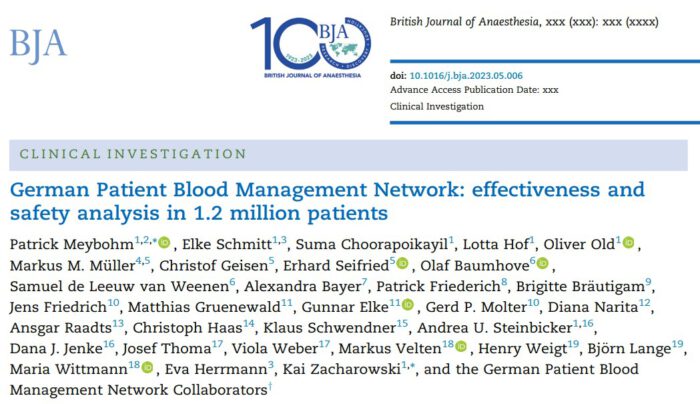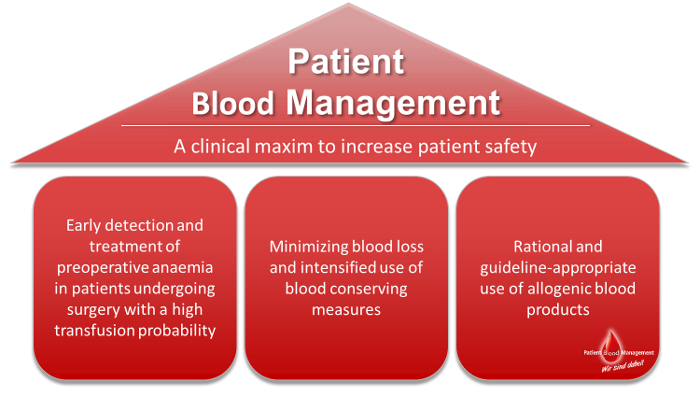Join Our PBM World Network – Be Part of It!
Become part of our global healthcare network and help advance the future of Patient Blood Management. By joining us, your hospital contributes to improving patient outcomes, optimising clinical practices, and promoting sustainable healthcare worldwide.
We support you with practical implementation materials.
Contact us and receive your PBM participation certificate.
Email: patientbloodmanagement@unimedizin-ffm.de
Our publication: German Patient Blood Management Network: effectiveness and safety analysis in 1.2 million patients

The German PBM Network was founded in 2014 with the aim to implement PBM in Germany. When joining the PBM Network, the hospitals are supported with training material and standard operating procedures.
In order to assess the effect of the PBM implementation, routine data of 1.2 million patients from 14 hospitals were evaluated. The analysis showed that the implementation of a PBM program can effectively reduce the consumption of red blood cell (RBC) units and the RBC transfusion rate in hospitals of different sizes. The reduction of RBC utilization is especially high in departments with high blood consumption (e.g. cardiac surgery, vascular surgery). In addition, PBM implementation was particularly effective in hospitals with initially high blood product consumption.
Patient Blood Management is a clinical maxim to increase patient safety by optimising patient’s own blood resources
The day-to-day application of PBM in clinical routines is based on three measurement bundles, the three sustaining pillars of PBM.
The number of PBM initiatives is growing worldwide. In Germany, PBM was initially implemented at the University Hospitals Frankfurt, Bonn, Kiel and Münster. With the initiation of the German PBM Network many additional hospitals were inspired to likewise implement PBM. Currently, Patient Blood Management is evolving to a major quality indicator in German hospitals. The European and World PBM networks were founded to foster the implementation of Patient Blood Management on a global scale. Since 2011 the World Health Organization urges its member states to support the implementation of PBM.
Pre-operative anaemia poses a considerable risk of blood transfusions and a poorer outcome. It is therefore important that preoperative anaemia is diagnosed and its cause investigated. A common cause of anaemia is iron deficiency. If iron deficiency is present, intravenous iron administration is one of the treatment options. This video summarises the most important information on the procedure for intravenous iron administration:
Did you know this about blood transfusions? Explained in a short video::

